WAP – Women Empowerment or Objectification?
Note: This story includes sexual references and song lyrics that some readers may find offensive.
If you haven’t heard this song by now, you’ve probably heard commentary on it. WAP by Cardi B and Megan Thee Stallion broke the internet the moment it was released on August 7th, debuting at No. 1 on Billboard, and shortly thereafter being used in a viral TikTok dance. The explicitly sexual lyrics and music video, on par with both Cardi and Megan’s usual content, wrought havoc through social media and the political world, with twitter users and politicians alike commenting on the content of the song and the message it sends. The controversy is this: does WAP encourage objectification of women or is it a feminist anthem?
“Certified freak, seven days a week,” are Cardi’s opening lyrics and are by far the most memorable of the song. This phrase encompasses the message these women aim to send; they own their sexuality and are unabashed when discussing it. While a repeating sample (popularized by rap artists Busta Rhymes and Lil Wayne) containing the lyrics, “There’s some whores in this house” plays throughout the song, the women rap non-stop about their sexual experiences, often using idioms and metaphors like buckets and mops to explain their various fetishes and desires. In comparison to many other rap songs both from female and male artists, these women are anything but submissive, and are straightforward about their desires and needs.
Mainstream music normalizes lyrics about men treating women as objects to be used for their bodies and tossed aside, sending the message to young boys and girls that it’s okay for men to own their sexualities and take control, but when a woman does the same, they are not to be respected. And, despite blatant misogyny that encourages abuse and exploitation of women, male rappers like Pop Smoke and DaBaby are widely celebrated, continuously topping charts. Even from beyond the grave, Pop Smoke has been releasing music that not only glorifies drug and alcohol use, but encourages a “player” and even “pimp” lifestyle. His latest song “For The Night,” featuring another prominent rapper, DaBaby, currently sits at #13 on Billboard Top 100. Some lyrics are as follows:
By rapping about wanting a purely sexual relationship as well as by calling women derogatory terms and detailing the pleasure that only the men will receive, these rappers send the message that sex should be for the sole benefit of the man, and that the woman’s wishes to have romance or pleasure should never be respected. Boys and girls alike listen to this music, prematurely having these notions ingrained into them of what type of treatment they should give and accept. Male rappers have been repeating these messages for decades, and they only grow more disrespectful and one-sided as time goes on.
What Cardi and Meghan brought into 2020 was a different approach to the sexually explicit lyrics that flourish in our generation; it focuses on female pleasure, and lacks the lyrics that demean their partners. Not once in WAP did the women discuss purposefully disregarding their partners’ wishes, and not once did they call their partners derogatory terms. Rather, they explained their various kinks and the emotions they feel during sex. In contrast to popular male rap today, the lyrics about pleasure are centered around their pleasure from the act itself, not around pleasure they receive from abusing or manipulating someone else.
While WAP was widely praised by many women as a modern if unconventional “feminist anthem,” the conservative political world was not as accepting. Politicians and commentators like Ben Shapiro and congressional-hopeful James P. Bradley of California, along with many other Republican senators and congressmen, took to Twitter and Youtube to air their grievances about the song. Shapiro went as far as to read the whole song lyrics, in his typical monotonous voice, before criticizing its message and stating that a wet vagina is unhealthy; Twitter users went wild after this statement, attaching his wife to the statement.
Meanwhile, Bradley wrote on Twitter, “Cardi B and Megan Thee Stallion are what happens when children are raised without God and a strong father figure.” Others, like conservative pundit DeAnna Loraine, called for the song to be banned (despite her constant reminders to the public about the importance of the first amendment) and said that the women calling themselves “whores” was degrading. Keeping in mind that these politicians have never before openly criticized other rap music, especially those that demean women, we must ask ourselves the question, why do they feel so strongly about this and why now?
The answer is simple. First, these politicians wanted to draw attention away from the national issues regarding Donald Trump and his many scandals around election time. What better way to distract than to tear the country apart over the message of a rap song. Second, they are afraid of a world in which women have control of their bodies. They may claim that a woman owning her sexuality and her own pleasure is “ungodly,” when in reality it is healthy and natural. But, when a woman realizes that she can be in control of her own body, men and women become equal not only in the bedroom but in the rest of life. It is possible, yet a stretch, that politicians attacking WAP is really a guise for politicians attacking women’s rights. Either way, it should not have received the reaction it did considering that it encourages female empowerment and equality among men and women, unlike much of the messages in modern rap today.
WAP, while certainly not “pure” or “holy,” is a song that empowers women young and old to feel comfortable in their bodies and feel comfortable discussing their needs, overcoming the stigma surrounding female pleasure. Not only this, but it helps to center the sexual conversation around women, while helping the public realize that there is nothing wrong with a woman attending to her sexual desires. And, unlike much of rap today, the lyrics do not promote objectification or mistreatment of sexual partners, but rather encourage equality and mutual respect for each other’s needs. No, WAP is not about romance or love, but it doesn’t have to be in order to be a feminist song; embracing one’s sexuality and body is just as empowering as celebrating emotional bonds. And, it’s about time that the political and musical world starts to recognize that.


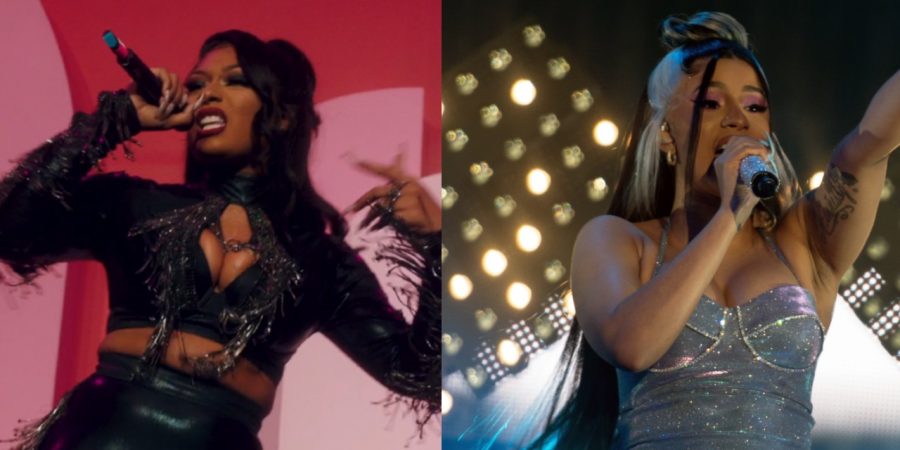

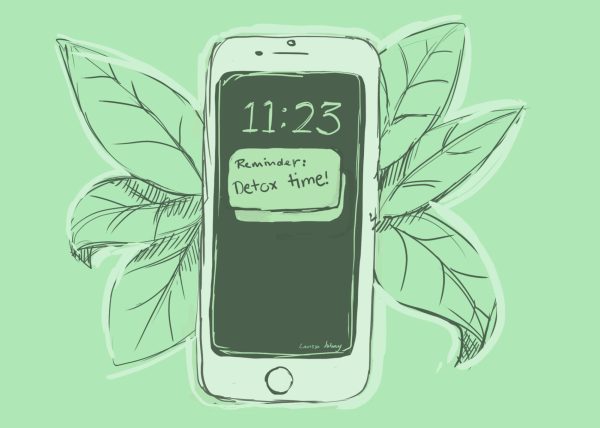

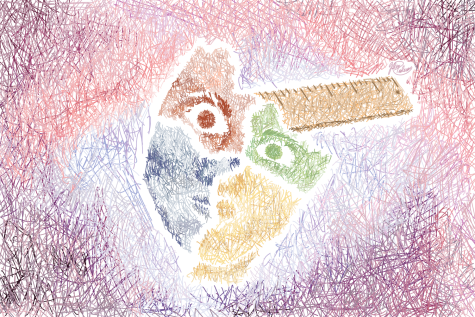


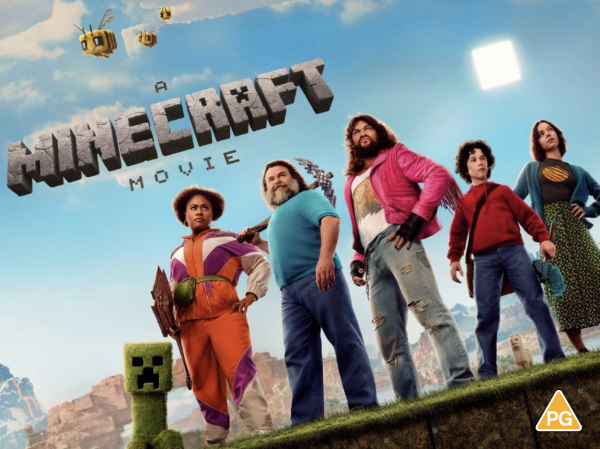
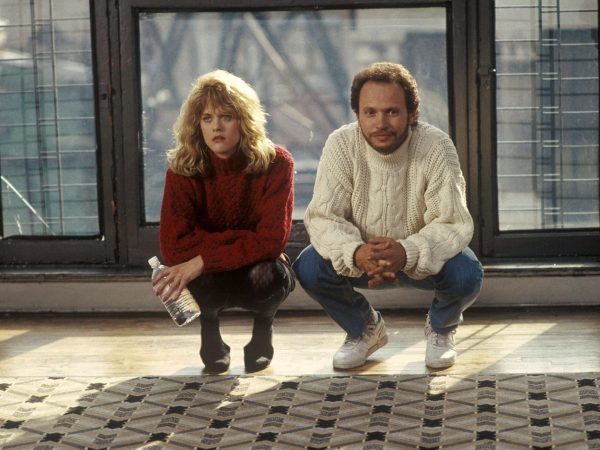

Crz73 • Aug 29, 2021 at 6:56 am
How can it empower women when the 1st line says there’s some whores in this house?
U don’t see Eminem talk about bjs then say manwhore.
Positive and negative cancel each other out.
They sing about getting money for that wap. They just singing about prostitutes.
Equality is being able to sing about sexuality without being labelled a whore or slut. Men can. So why does this song empower women’s sexuality but call them whores at the same time? If anything its doing the opposite. Its stating if u have a wap ur a whore. Which is wrong.
Not every song has something deep and meaningful behind it.
If they wanted to empower women send some of the profits to a women’s shelter.
Jeffrey Munoz Jr • Aug 13, 2021 at 10:30 am
Of course a 21 year old thinks this is empowering. You grew up with the Miley Cyrus , Cardi B culture. Look at how many comments you have Julia. Against your opinion. The video is disgusting and a disaster. It does not in any way empower women. The lyrics literally speak of riding someone and asking for a car or having tuition paid. That’s what 16-21 year olds would aspire ? Imagine spreading such disgusting ideology. Instead of earning and working towards your dreams and goals , have another human with money pay for you because they have sex with you. It’s disgusting and I cannot believe there are women like you who think as you do Julia. Then again this whole movement started before wap. You’ve been conditioned to see this as normal. Just as the Chinese see the things they do as normal. Sheep.
James • Apr 24, 2021 at 8:17 am
I know I am late to this discussion, but too many women are not paying attention and endorsing this terrible song.
First, people need to see what the music industry is. Since its inception, the music industry has been exploiting men and women (of all races) for profit. The music industry was created by men, to make money for men, and it is one of the crowning achievements of the patriarchy. The industry is crooked and exploits people for profit. It is not care about men’s issues, women’s issues, family issues, racial issues, or gender issues. It’s all about profit.
Second, when you look at WAP, you will see men are in charge. The song writers are men. The producers are men. The video director is a man. The record label is run my men. Like most musical artists today, all Cardi B did was show up in the studio and perform the song. Likewise, for the music video, all she did was show up and perform. Men used her image to create, produce, and sell a song that objectifies women. We are led to believe this song is an expression from her (which is what the music industry does), but it’s coming from men and they are the puppet masters.
In order for me to believe this is empowering to women: (a) it would have to be produced by the National Organization for Women, (b) all the song writers would have to be women, and (c) the video director would have to be a woman. Instead, we have the exact opposite and men are making money using women’s sexuality. This sounds more like pimping than empowerment to me.
For women who see this song as empowering, ask yourself a basic question: would you still feel the same way about it if the rapper Drake performed it describing how women should look, move, and perform sex? If the song is truly empowering, it would not matter which gender performs it.
The music industry knows “sex sells” and they are always looking to push the envelop to make more money. Cardi B was their latest recruit to “make bank”. Feminists, rightly, reject this content from men as misogynistic. To be fair and equal, feminists should reject this content from women too. Just because a women is the face of degrading content does not legitimize the content.
MImiF • Apr 15, 2021 at 1:11 pm
As a Conservatives Black woman I do not find this song empowering at all. In fact I think it makes issues worse especially for Black women. For centuries Black women were seen no more than sexual objects especially by men both Black and White. There have been studies showing that Black girls are seen as less innocent that White Girls (https://www.law.georgetown.edu/news/black-girls-viewed-as-less-innocent-than-white-girls-georgetown-law-research-finds-2/) and many times our girls are not even seen as children (https://www.nytimes.com/2020/04/17/parenting/adultification-black-girls.html). I have had a number of friends and colleagues speak how many think we are easy just because we are Black women, this song did not help at all. Now you add this video and the Grammy performance and I feel this has set Black women back decades.
The only way I would see this as empowering if if these women owned every aspect of their careers (manager, producer, own record company, distributor ,etc.) instead their are men of all races making money off of these women’s “empowerment”
Marina-Gift on March 17, 2021 • Mar 17, 2021 at 12:44 pm
I’m a 17 year old girl and I must say that My problem with this article is that women are so much more than just their bodies. And if a song portraying naked girls is supposed to be empowering, what about the millions of young teenage girls who see this outrageous music video and start selling their bodies on social media just for money. Although this crazy feminist movement is trying to elevate women’s rights, it is doing the exact opposite! Because more young girls are beginning to think that portraying their bodies anyhow is the right way to get a man and have a man stay with you! The lyrics of the song are NOT empowering because they condition the minds of young girls to think a relationship is all about sex. How can women go forward or be taken seriously when all they sing, rap or talk about is their body? Yes I agree that male rap music has been doing this for a while but it has also been condemned. I personally have always been against the sex, violence and all the other things these male rappers talk about but if we women want to make a difference, it’s not by imitating what is vulgar, it is by setting an example for society. And I know that WAP IS SURE NOT AN EXAMPLE NOR THE KIND OF SONG TO LISTEN TO!
Andrea Moore • Mar 15, 2021 at 12:34 am
After the grammys I listened to it. I watched it. I cannot see how this is empowering. Being a whore or prostitute is not feminism to professional women needing to be taken seriously and trying to avoid sexual objectification that interferes in daily accomplishments. This does set us back to sex being a career choice, lowering professionals. The video implies wealth, mansions and success to those that are whores not say scientists and continues unhealthy stereotypes to young women. Time to stop this if possible. It was humiliating. I disagree with you.
Julia Ross • Mar 15, 2021 at 10:52 am
Everyone is entitled to their own opinion, and I disagree with you. Saying that these women, who are very successful musicians, are “whores and prostitutes,” solely because of the clothes they wear and their sex-positivity, is disrespectful. But, even if they were prostitutes, why should sex being a career choice impact the lives of other women? There are male prostitutes as well, yet no one makes the argument that this interferes with other men’s ability to be successful. Women are objectified and have been for a long time, with or without sex-positive rappers performing at the Grammy’s. Perhaps we should be blaming the culture of toxic masculinity that encourages men to see women as objects instead of blaming women who are simply existing. And, the song and video make no reference to scientists; just because people can make money being strippers doesn’t mean others cannot make money being scientists. This all boils down to misogyny. It’s time to stop telling women what they can and cannot do with their bodies and start educating boys about how to treat ALL women regardless of their profession with the respect they deserve.
Karen Gonzalez • Mar 3, 2021 at 9:13 pm
First of all, I have to say, that I would not have this song in my playlist. It is not my taste in music. That said, I really was happy to hear that a song about female sexuality was made. The lyrics may be a bit risqué, but then that is what the debate is about.
I have no problem with the song itself, for the most part. My objection and dislike with the song is the video for the song.
How does this video empower women? It’s no better than male videos. The song loses all credibility by having a video that objectifies women associated with it.
Julia Ross • Mar 4, 2021 at 2:37 pm
I agree with this comment to some extent. Thank you for creating this dialogue! The song itself is empowering, but the video is more appealing to the male gaze and male audience. As I said in my other comment, I think we should not blame these women for dressing in this manner, but rather for the toxic misogyny that exists in the rap and hip-hop industry to make these types of videos the successful ones. Often, in order for traditionally feminine women to make it in the rap world, they must appeal to the stereotypes propagated by the men in the industry. I applaud these women for rapping about owning their bodies and sexuality, but I think there is still work to be done to eliminate the existing culture surrounding the way women are objectified in songs and videos.
Chiara • Mar 2, 2021 at 2:32 pm
I really appreciate you article. Although I agree with the message of the song, I found the music video to be extremely objectifying of womens’ bodies.
What purpose did it serve, other than to excite heterosexual men?
I’m genuinely curious about your views on that.
Julia Ross • Mar 4, 2021 at 2:28 pm
This is a good question, and the answer is definitely not black and white. I think we’ve seen over the years that, if traditionally feminine women want to make it in the rap world, they often need to appeal to their audience by dressing and dancing in a sexual manner. I think Cardi B and Megan Thee Stallion were simply doing what would get them the views, and I cannot blame them for that. Are they perhaps succumbing to the male gaze by making these videos? Yes. But, I think rather than focusing on these women specifically, who are merely playing to their audience, we should focus on the misogyny that exists within the hip-hop/rap genre and how women who are trying to break through often have to exploit their gender and sexuality to make it big. Check out this article if you are interested! https://scholarblogs.emory.edu/soundsofthecentury2019/adobea-addo-ashong/
Stephanie Lipkowitz • Nov 18, 2020 at 10:56 am
Julia, This is a really intelligent and courageous article. I agree with the comment above that it is vital not to shy away from controversial topics, and you treat this with seriousness and balance. Brava! Really proud of you and of the Advocate. You all have been fire this semester. Thanks for the hard work. Ms. Lipkowitz
Miriam Hoehn • Nov 12, 2020 at 3:52 pm
Great dissection of the controversy surrounding the song! However, there is one part of the controversy that I feel should have been touched on. The reference to the women getting money or other things (college tuition, phone, etc) in return for sex was a part of the controversy that was a main point for some conservatives who felt that the song was objectifying. Overall great article though, and I am glad that the advocate didn’t shy away from this issue. Pop culture isn’t always clean, after all!
Julia Ross • Nov 13, 2020 at 12:15 pm
Thank you! I appreciate the criticism. In every tweet or interview I have seen of conservatives discussing the song, and it’s possible that I missed it, they did not mention the lyrics that are about men who want to pay for sex with the rappers. Even so, you raise an interesting point. With Cardi’s background as a stripper, I think it makes sense that she would bring money into the equation. In my opinion, if a man wants to pay a woman for intimacy, and they are two consenting adults, I do not think it is problematic for the woman to accept the payment. The same goes for anyone of any gender. I can see how the conservatives might find this to be degrading for women, but I believe that as long as they are respecting themselves and are happy with their decisions, I am in no place to critique them. If you find any more information about conservative arguments in regards to the lyrics about payment for intimacy, feel free to send it our way! – Julia